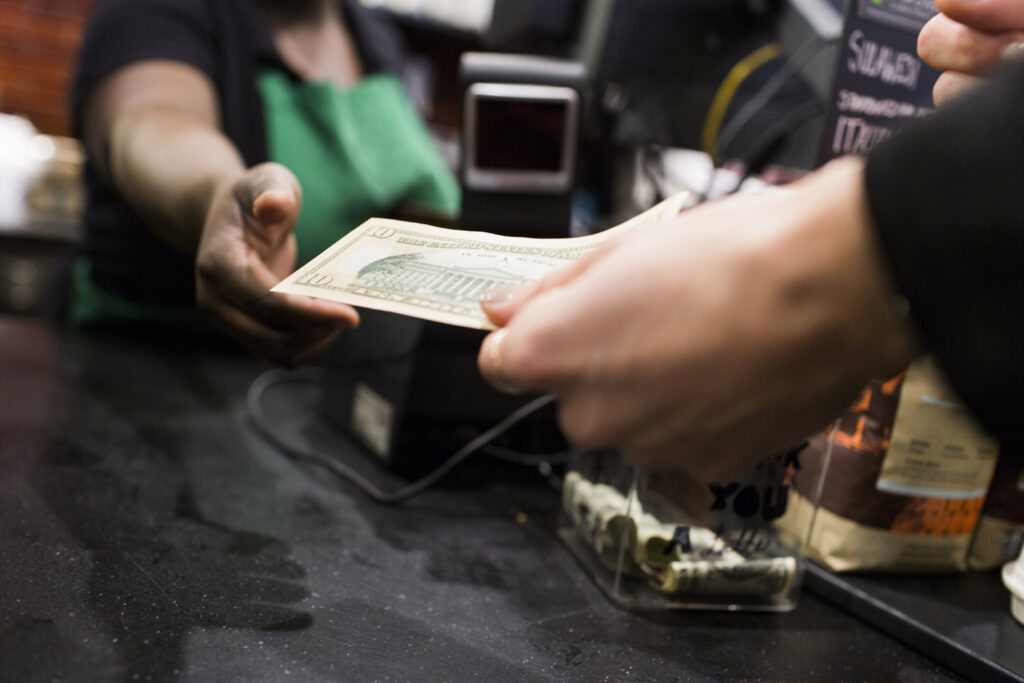Cannabis Payment Processors 2025 | Compare Top Options
Cannabis dispensaries processed over $30 billion in transactions across the United States in 2024, yet traditional credit card networks remain off-limits due to federal restrictions. Modern payment processors offer compliant alternatives including ACH transfers, PIN debit, and point-of-banking solutions. Understanding processor options, fee structures, and compliance requirements determines operational efficiency and customer satisfaction.
The 2025 payment landscape shifted significantly after cashless ATM crackdowns in late 2022 disrupted major processors including Paybotic and Jory Payments. ACH emerged as the gold standard, with fees typically ranging from 1% to 1.5% per transaction compared to $2 to $3.50 for point-of-banking methods. While the SAFE Banking Act awaits Senate floor votes, dispensaries must navigate current federal restrictions using specialized payment solutions.
Table of Contents
- Understanding Cannabis Payment Processing in 2025
- Top Cannabis Payment Processors Compared
- ACH Transfers: The New Gold Standard
- Point-of-Banking and PIN Debit Options
- Compliance Requirements and FinCEN Guidance
- Fee Structures and Transaction Costs
- FAQ
- Conclusion
Understanding Cannabis Payment Processing in 2025
Cannabis remains federally illegal as a Schedule I controlled substance, preventing major credit card networks like Visa and Mastercard from processing dispensary transactions. Financial institutions face potential federal penalties for servicing marijuana-related businesses despite state legalization in 38 jurisdictions. This disconnect forces cannabis retailers to adopt specialized payment solutions ensuring compliance while providing customer convenience.
Cannabis dispensaries cannot accept traditional credit cards due to federal prohibition. Compliant alternatives include ACH bank transfers, PIN debit through independent networks, and point-of-banking systems. These methods bypass major card networks while enabling cashless transactions, reducing theft risks and improving customer experience through secure electronic payments.
The Federal Banking Challenge
FinCEN issued guidance in February 2014 establishing Bank Secrecy Act expectations for financial institutions serving marijuana-related businesses. This guidance requires banks to file Suspicious Activity Reports on all cannabis transactions, even for state-licensed operations. The administrative burden and regulatory uncertainty discourage most traditional financial institutions from offering cannabis banking services.
The SAFE Banking Act passed the Senate Banking Committee with bipartisan 14 to 9 support in 2025, awaiting full Senate floor votes. If enacted, this legislation would protect banks serving state-legal cannabis businesses from federal penalties. Until federal reform occurs, dispensaries rely on payment processors specializing in high-risk merchant services navigating complex compliance requirements.
Customer Payment Preferences
Only 14% of consumers regularly carry cash according to payment industry data. Cannabis merchants using card-based payment methods report 20% to 30% higher average transaction values compared to cash-only operations. Digital payment solutions reduce theft risks, eliminate cash handling costs, and improve operational efficiency through automated reconciliation and transparent audit trails.
Mini-Case Example: A Colorado dispensary implementing POSaBIT’s ACH solution in early 2025 reduced cash handling by 75% within three months. Average ticket sizes increased from $48 cash-only to $62 with digital payments available. The operation eliminated armored car services saving $1,200 monthly while improving budtender safety and transaction speed.
Top Cannabis Payment Processors Compared
POSaBIT Systems
Kirkland, Washington-based POSaBIT operates since 2015 as a leading cannabis payment technology provider. The company achieved 65% gross profit margins in Q1 2025, processing millions monthly across hundreds of U.S. merchant locations. POSaBIT One offers customizable tip options, split payments, integrated loyalty redemption, and payment redundancy ensuring operational stability.
POSaBIT Pay provides ACH-based solutions enabling cashless payments directly from customer bank accounts, functioning similarly to major digital wallets. The platform integrates seamlessly with point-of-sale systems, supporting both in-store and delivery operations. Following 2022 cashless ATM network disruptions, POSaBIT migrated completely to compliant payment rails prioritizing long-term reliability over short-term convenience.
Paybotic
West Palm Beach, Florida-based Paybotic specializes exclusively in cannabis payment processing since 2014. The company offers PIN debit payments, eCheck processing, and ACH payment options alongside gift card programs. Paybotic’s pricing structure includes setup fees and monthly retainers rather than traditional per-transaction models, providing cost predictability for dispensary operators.
Paybotic experienced significant service disruptions during December 2022 when ATM processors including NCR’s Columbus Data Services terminated cashless ATM support. Despite these challenges, Paybotic maintains operations serving medical marijuana dispensaries, recreational retail locations, and e-commerce businesses with compliant payment infrastructure.
Green Check Verified
Green Check Verified provides consulting and software solutions specializing in cannabis banking compliance. Peter Su, senior vice president at Green Check, noted the cashless ATM crackdown marked a pivotal point in cannabis banking history. The company helps financial institutions implement robust compliance programs enabling them to serve marijuana-related businesses within FinCEN guidelines.

ACH Transfers: The New Gold Standard
Automated Clearing House transfers emerged as the most stable and compliant cannabis payment method in 2025. ACH processes bank-to-bank transactions directly without involving major card networks. Transactions typically cost 1% to 1.5% per transaction, significantly lower than point-of-banking alternatives charging $2 to $3.50 per transaction.
ACH payments transfer funds directly between bank accounts without credit card networks. Customers link accounts through secure platforms like Plaid, completing instant verification. Transactions cost 1% to 1.5% versus higher point-of-banking fees. ACH works seamlessly for e-commerce and in-store purchases, reducing cash handling while maintaining full FinCEN compliance.
Integration with Modern POS Systems
Flowhub integrated Aeropay’s ACH solution enabling dispensaries to accept compliant digital payments. The integration provides instant bank verification through Plaid technology, allowing customers to link accounts in seconds. WebJoint Pay offers fully integrated payment processing designed specifically for dispensaries, featuring next-business-day payouts and the lowest industry fees.
Cova achieved seven consecutive years of 100% uptime on 420, the cannabis industry’s busiest sales day, processing hundreds of thousands of orders. Cova Pay ACH requires no terminals, facilitating payments through text messages. This out-of-the-box integration eliminates third-party vendor complications while maintaining audit-ready compliance.
ACH Advantages for Dispensaries
ACH eliminates cash handling risks including theft, accounting discrepancies, and expensive armored car services. Electronic transfers create transparent audit trails satisfying regulatory reporting requirements. Customers appreciate payment convenience comparable to mainstream retail experiences, improving satisfaction and encouraging repeat purchases.
Expert Tip: Prioritize ACH processors offering Plaid integration for instant bank verification. This technology reduces failed transactions, accelerates customer onboarding, and minimizes fraud risks through secure authentication. Verify processors maintain uptime records exceeding 99% during peak sales periods to avoid revenue losses during high-demand days.
Point-of-Banking and PIN Debit Options
Point-of-banking systems allow customers to access bank accounts at point-of-sale, functioning similarly to ATMs. Customers insert debit cards, enter PINs, and complete transactions in $5 increments or rounded to the nearest dollar. Merchants receive portions of convenience fees as rebates while customers pay surcharges ranging from $2 to $3.50 per transaction.
Point-of-banking mimics ATM transactions at checkout, requiring PIN entry and rounding to whole dollars. Customers pay $2 to $3.50 convenience fees per transaction. PIN debit uses independent networks accessing credit unions and community banks willing to serve cannabis merchants. Approval rates range 70% to 95% depending on network partnerships.
The 2022 Cashless ATM Crackdown
Major ATM processors including NCR’s Columbus Data Services terminated support for cannabis cashless ATM systems in December 2022. This disruption affected approximately $7 billion in annual transactions, representing 25% of U.S. cannabis sales. Card networks Visa and Mastercard issued industrywide warnings that cashless ATMs violate operating rules when disguising cannabis purchases as withdrawals from unrelated locations.
Ryan Hamlin, POSaBIT CEO, stated this marked a pivotal cannabis banking moment. POSaBIT completed migration away from cashless ATM solutions over 12 months, eliminating final systems in December 2022. The crackdown forced dispensaries seeking stable long-term payment infrastructure to adopt compliant alternatives like ACH and legitimate PIN debit networks.
Compliance Requirements and FinCEN Guidance
Financial institutions serving cannabis businesses must implement rigorous compliance programs under FinCEN guidance issued February 14, 2014. Banks must verify entity legitimacy, confirm state licensing, document beneficial ownership exceeding 25%, and maintain ongoing legal compliance monitoring. All marijuana-related transactions require Suspicious Activity Report filings even for state-licensed operations.
FinCEN requires banks to file SARs on all cannabis transactions, verify business licenses, document beneficial owners, and monitor ongoing compliance. Payment processors must implement Know Your Customer protocols, maintain transparent recordkeeping, and flag suspicious activities. Operators should maintain current licenses, digital COAs from accredited labs, and updated beneficial ownership documentation.

The Four Pillars of Cannabis Payment Compliance
Compliance Framework Checklist:
- Licensing verification: Confirm all state and local licenses remain current and match actual business operations
- Beneficial ownership transparency: Document all individuals with 25% or greater ownership stakes with government-issued identification
- Transaction monitoring: Implement automated systems flagging unusual activity patterns or volume anomalies
- Audit-ready recordkeeping: Maintain exportable seed-to-sale tracking, Certificates of Analysis, and financial reconciliation for three years minimum
Fee Structures and Transaction Costs
Understanding payment processing costs enables informed decisions about which methods to prioritize. ACH transfers offer the lowest fees at 1% to 1.5% per transaction, making them ideal for high-volume operations. Point-of-banking systems charge $2 to $3.50 per transaction with convenience fees typically passed to customers, minimizing dispensary expenses.
ACH fees range 1% to 1.5% per transaction. Point-of-banking charges $2 to $3.50 per transaction, usually paid by customers. PIN debit approval rates range 70% to 95%. Evaluate processors offering volume discounts, transparent pricing, and integrated POS compatibility. WebJoint Pay provides lowest industry fees with next-day payouts.
Reducing Payment Processing Expenses
Dispensaries reduce costs by negotiating volume discounts for high transaction counts. Surcharging passes processing fees directly to customers, minimizing business financial burdens. Bundling services with single providers offering integrated POS, inventory management, and payment processing eliminates multiple vendor fees while improving operational efficiency.
FAQ
Why can’t cannabis dispensaries accept credit card payments in 2025?
Federal law classifies marijuana as Schedule I controlled substance. Major credit card networks Visa and Mastercard prohibit cannabis transactions to avoid facilitating federally illegal activity. While the SAFE Banking Act awaits Senate votes, dispensaries must use ACH, PIN debit, or point-of-banking alternatives bypassing traditional card networks.
What’s the most cost-effective payment method for dispensaries?
ACH transfers offer the lowest fees at 1% to 1.5% per transaction compared to point-of-banking at $2 to $3.50. ACH provides secure bank-to-bank transfers without involving card networks. WebJoint Pay integrates ACH with POS systems, offering next-day payouts and industry-low processing fees while maintaining full compliance.
Are cashless ATM systems still viable in 2025?
Cashless ATM systems faced major crackdowns in December 2022 when processors like NCR terminated support. Visa and Mastercard explicitly prohibit these systems violating operating rules. Reputable processors including POSaBIT completed migrations to compliant alternatives. Dispensaries should avoid cashless ATMs, choosing ACH or legitimate PIN debit instead.
How does the SAFE Banking Act affect payment processing?
The SAFER Banking Act passed the Senate Banking Committee with bipartisan support in 2025, awaiting full floor votes. If enacted, this legislation protects banks serving state-legal cannabis businesses from federal penalties. Passage would expand banking access but won’t eliminate FinCEN compliance requirements. Dispensaries should prepare with transparent financials and updated documentation.
Conclusion
Cannabis payment processing evolved significantly following 2022 cashless ATM disruptions, with ACH emerging as the most stable and cost-effective solution. Leading processors including POSaBIT, Paybotic, and integrated platforms like WebJoint Pay offer compliant alternatives reducing cash dependence while improving customer experiences. Understanding fee structures, compliance requirements, and processor capabilities enables dispensaries to select optimal payment infrastructure.
Success requires balancing cost considerations with reliability, compliance, and customer convenience. ACH’s 1% to 1.5% fees combined with instant bank verification through Plaid integration provide superior economics compared to point-of-banking alternatives. While federal banking reform remains uncertain, proactive compliance preparation and transparent recordkeeping position dispensaries for expanded financial services access when legislation passes.Learn how to accept secure, compliant cannabis payments in your dispensary. Compare top processors including WebJoint Pay’s integrated solution with next-day payouts and lowest industry fees. Download your free payment setup checklist covering ACH integration, FinCEN compliance, and POS compatibility requirements at WebJoint.com today.
